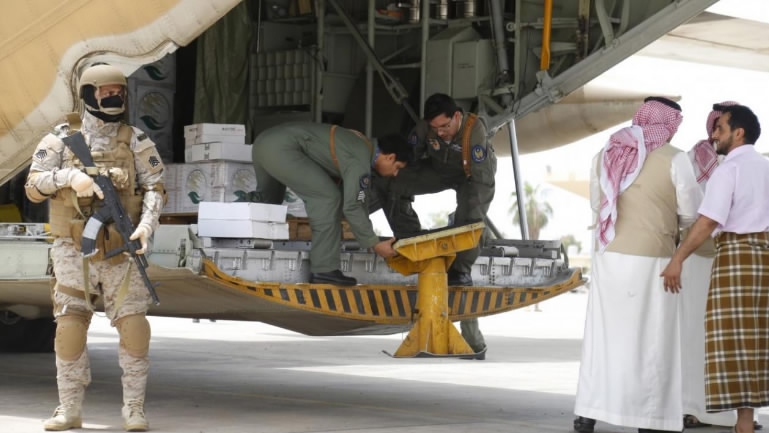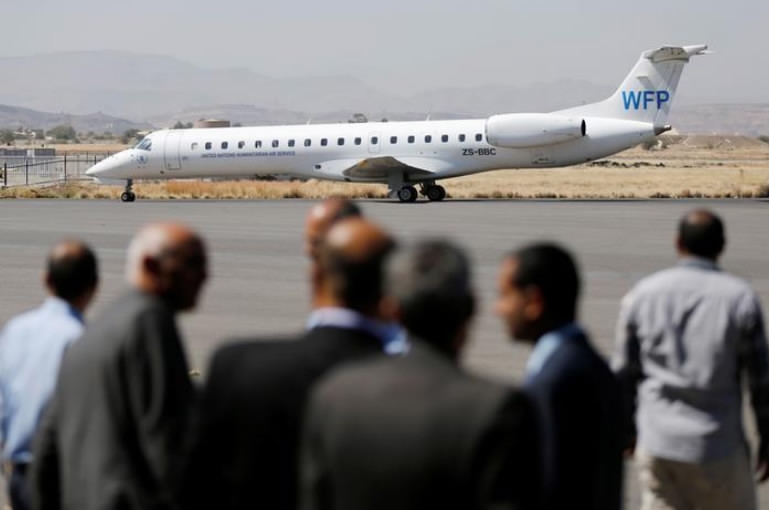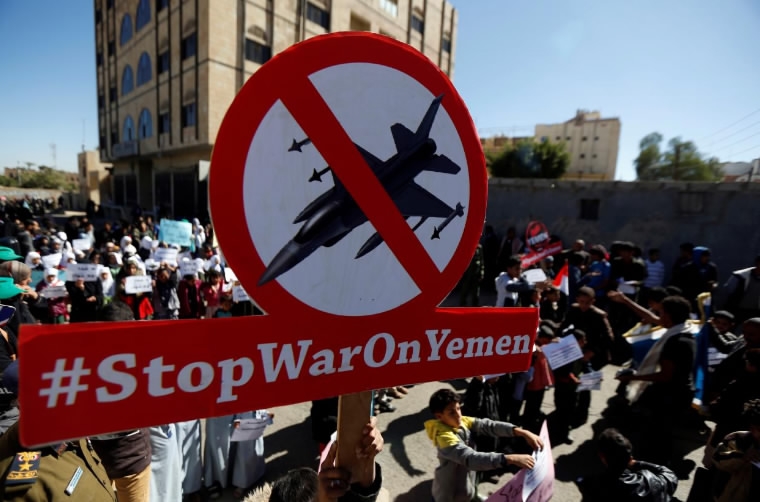
Politics
14:53, 23-Nov-2017
Yemen port, airport to reopen to aid, says Saudi-led coalition
CGTN

The Saudi-led coalition fighting in Yemen said Wednesday it would reopen a key Red Sea port and Sanaa airport to aid, after a more than two-week blockade following a missile attack on Riyadh.
The coalition said it would reopen Hodeida port to receive "urgent humanitarian and relief materials" and Sanaa airport to UN aircraft from midday on Thursday (0900 GMT).
It did not specify when or if it would ease a blockade on commercial traffic.
Hodeida, which is controlled by Huthi rebels backed by Saudi Arabia's arch-rival Iran, is a key conduit for much-needed food and medicine imports to Yemen.

Officials from the Houthi-led government wait as a plane carrying the UN Under-Secretary-General for Humanitarian Affairs Mark Lowcock taxis at Sanaa airport, Yemen, October 25, 2017. /Reuters Photo
Officials from the Houthi-led government wait as a plane carrying the UN Under-Secretary-General for Humanitarian Affairs Mark Lowcock taxis at Sanaa airport, Yemen, October 25, 2017. /Reuters Photo
The coalition imposed a total blockade of Yemen's ports and airports two days after the Huthis fired a missile at Saudi Arabia on November 4.
The missile was intercepted near Riyadh's King Khalid International Airport, sparking a war of words between Tehran and Riyadh, which accused Iran of "direct aggression" and supplying arms to the Huthis.
The United Nations said Wednesday it had been notified by the Saudi authorities of the reopening on Thursday of the Yemeni ports of Hodeida and Saleef, as well as Sanaa airport.
"We are monitoring these developments and we are trying to see whether that actually takes place on the ground," UN spokesman Farhan Haq told reporters at UN headquarters in New York.
"Of course, if that were to happen that would be a very welcome and critically important development."
Aid group Save the Children welcomed the coalition's announcement but said opening the port and airport would be "nowhere near enough to avert a potential famine in Yemen."
"Humanitarian relief only provides a small portion of the essential goods needed in Yemen, commercial supplies are critical to feed the population and keep basic services running," it said.
UN aid chief Mark Lowcock called on November 8 for the blockade to be lifted, warning that Yemen would otherwise face "the largest famine the world has seen for decades."

Children protest against the Saudi-led coalition outside the UN offices in Sanaa, Yemen November 20, 2017. /Reuters Photo
Children protest against the Saudi-led coalition outside the UN offices in Sanaa, Yemen November 20, 2017. /Reuters Photo
The Huthi government on Tuesday announced the country's main international airport was fully functional again a week after a Saudi-led air strike destroyed the facility's navigation system.
The airport had been open to only select humanitarian flights.
Allied with Yemeni strongman Ali Abdullah Saleh, the Iran-backed Huthi rebels control the capital Sanaa along with much of northern Yemen.
In 2015, Saudi Arabia and its allies joined the Yemeni government's fight against the rebels.
More than 8,750 people have since been killed.
The country also faces a deadly cholera epidemic and millions stand at the brink of official famine.
The UN Food and Agriculture Organization (FAO) said Yemen is highly dependent on imported wheat for its basic needs.
Source(s): AFP

SITEMAP
Copyright © 2018 CGTN. Beijing ICP prepared NO.16065310-3
Copyright © 2018 CGTN. Beijing ICP prepared NO.16065310-3